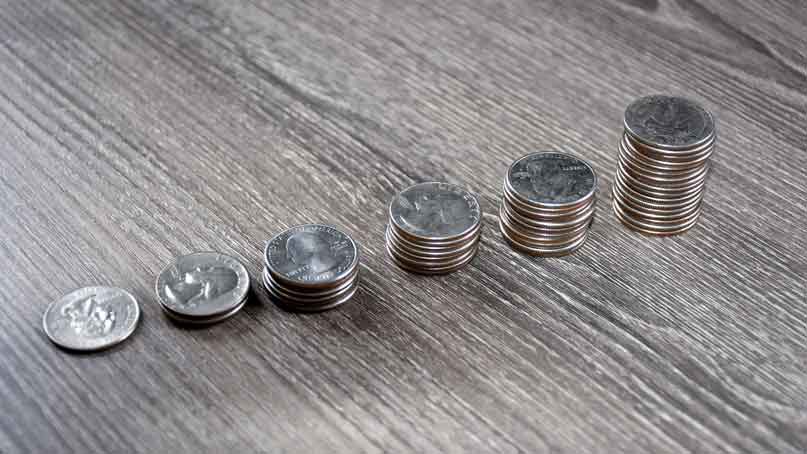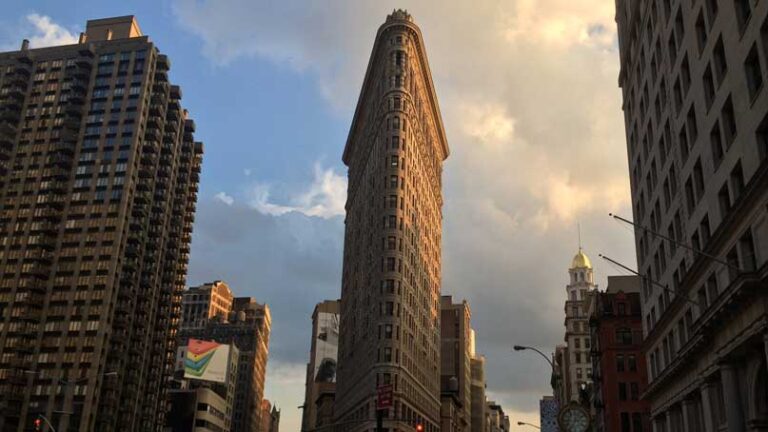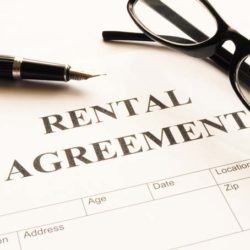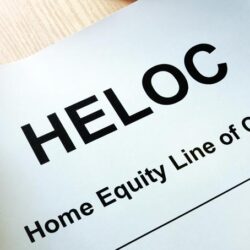How would you advise this reader on her rent or buy question?
I recently turned 50 and got divorced after almost 20 years of marriage. I have not worked for over 15 years so I will be living off of the alimony settlement, while I retrain for a new career. I know I want to return to New York City, where I’m from, and specifically Manhattan.
Based on the assets I received in the divorce settlement, my financial advisor confirmed I could safely spend up to $1.25 million on an apartment, which would get me something in the neighborhood I would want to live. I want to buy to lock in my housing expenses since I’m on a fixed income – I plan to work but can’t assume I will definitely find a job, or at least a reliable job.
I want to take out a mortgage since rates are so low, but I also like the idea of having no monthly housing payment. Or maybe I should just rent. What would you do?
– Starting Over
Having come from New York City myself, I can see the allure of the place, despite the costs. $1.25 million will just get you a 1-bedroom apartment, or even just a studio, depending on the building. Here’s a listing for a 1-bedroom condo for $1.15 million in my favorite building in NYC.
But enough with the window shopping! This is a financing question, not a consumption question. This reader did not ask us whether we thought spending that much money on a place to live was a good idea – she’s already doing it. She also didn’t ask if she should focus on Manhattan, instead of an outer borough of New York City, where you can find cheaper housing – she’s only looking at Manhattan. (To give you an idea of how wide the discrepancy can be, a 1-bedroom condo in Jackson Heights, Queens is going for $439k, or almost two-thirds less!)
Renting gives you maximum flexibility
While she didn’t ask us whether she should spend up to $1.25 million as her financial advisor said she could, she did put out the possibility of renting instead of buying. If she were to rent a 1-bedroom, say in my favorite building, the cheapest 1-bedroom listing is a rental for $3,650 per month. That means, she would be out $43,800 each year for rent, but keep the rest of the $1.25 million for now.
The balance of her money could be invested, and if it generates 3.5% net of taxes and fees, that would be enough to cover the rent! Or some of the million could be used to support her career re-entry. She could still decide to buy another time. The market may be more affordable in a year or two. Or she might change her mind about Manhattan, if her career takes her elsewhere.
With renting, you are not tied down to your location for too long – just the length of the lease. If you need or want to leave, you don’t have to worry about the time it takes to sell your property or the transaction fees (which in New York City are relatively high).
On the downside, however, your housing payment is uncertain, in that it’s only fixed for the length of the lease. In a landlord’s market, there have been cases where rents are increased by double digits. I don’t think that would be the case during the pandemic – if anything, rents in NYC have been decreasing.
I could tell that Starting Over really wanted to buy. She equated renting with throwing her money away. I countered that even owners have ongoing monthly costs because of property taxes, insurance and maintenance. In New York City, monthly maintenance can be significant, especially in buildings with nice amenities, like a doorman or a gym. While she conceded the validity of my argument, she really wanted our opinion on buying.
Buying with a mortgage doesn’t solve for flexibility but at least helps with liquidity

If you’re hell-bent on buying, I would definitely do it with a mortgage. Rates are super low, and this reader actually got pre-approved at a below-3% rate. If inflation runs at 3% or higher (and certain things like healthcare and education are increasing at well over 3%), borrowing at a cheaper rate means you’re paying the bank back with cheaper and cheaper dollars as you move through the term of the loan. I am amused at the prospect of getting one over on the banks!
Taking out a mortgage also smooths out your payments. This is important for this reader since she’s re-establishing her career, and now she has a monthly earnings target to shoot for.
In the meantime, instead of parting with all $1.25 million now, she is only using enough to cover the down payment and closing costs. Even if that takes up 50% of the housing stash, that still leaves the other half liquid. She can always prepay the mortgage if she really wants to get rid of it, but she has the flexibility to keep it in the bank, to invest it, to go back to school, etc.
Buying without a mortgage, or paying cash, can make sense even in a low interest rate environment
Believe it or not, there are advantages to paying cash, even if you can get a low mortgage rate. First of all, some people value the peace of mind that comes with having a lower monthly outflow. It’s hard to put a price tag on that peace of mind. If having a large mortgage keeps you up at night, and you have the cash, you’re effectively investing in lowering your stress level, which is an investment in your health, which is a good investment.
In a competitive housing market, being an all-cash buyer makes you very attractive to the seller. Some sellers will take a lower offer that’s all cash (versus a higher offer that is contingent on financing) because that offer is more likely to go through and to close quickly. There is no chance with a cash deal that a mortgage may get derailed last-minute because the buyer’s financial picture changes, or because the property doesn’t appraise high enough to cover the mortgage.
Manhattan is a Type A market – the New York minute is real!
In the end, this reader decided to buy and to take out a mortgage. To remain a competitive buyer, she put forward offers with no mortgage contingency, thus proving to the seller that she was willing and able to close in cash as needed. This makes her just as competitive as a cash buyer, but she preserves her option to get a mortgage and take advantage of the low rate.
What I would do with $1.25 million in NYC

I know some people who would always buy, regardless of the financial calculation, because they are very particular about where they live, and they would want to lock that in. This reader had a particular neighborhood and layout in mind. She also wanted some continuity after the recent disruptions in her life. Very understandable!
I am not so particular in my housing choices, so I have no problems renting. I don’t care if that limits how much I can renovate my place, or if that puts me at risk of having to move if my landlord decides not to renew the lease or drives up the rent too high. I also am not going through any major life transitions right now, so it’s easy for me to take on the uncertainty of renting over buying.
I value the liquidity and flexibility that renting affords, especially in a high-cost-of-living city, where buying requires a significant outlay of cash. If I came into $1.25 million and had to live in NYC, I would opt for a rental and try to lock in a two-year lease or a guaranteed low renewal rent. Then setting the rent aside, I would take the balance and invest it.
Using the 1-bedroom rental listing I mentioned earlier, that means I would set aside $90k for two years of rent and invest the $1.16 million. That’s ten $110k rental homes I could purchase for cash. Or ten $200k rental homes I could purchase with 50% down and therefore a small monthly mortgage per property.
I could also use the $1.16 million to float my living expenses as I started a business. Or I could buy a business.
Or I could build a dividend stock portfolio or a laddered bond portfolio or diversify across index funds to try and generate a low-volatility paper asset return.
Or I would divide the money across several of these strategies – real estate, business and paper – which is how we manage our assets currently.
Living in a high-cost-of-living city is tricky because your monthly outflow can be quite high, just to afford the basics of taxes, housing and healthcare. If you experience a large drawdown in your portfolio, you won’t be able to cut back on spending as much as you can in a cheaper place. It’s one of the reasons we decamped to Florida for FIRE Stage 2. We can take more risks here, and but for the pandemic of course, we can always travel to New York and other HCOL cities as needed.
Clearly, my primary value is flexibility!
=============
How would you spend the $1.25 million? Would you rent, buy with mortgage or buy all cash?


 We are Scott and Caroline, 50-somethings who spent the first 20+ years of our adult lives in New York City, working traditional careers and raising 2 kids. We left full-time work in our mid-40’s for location-independent, part-time consulting projects and real estate investing, in order to create a more flexible and travel-centric lifestyle.
We are Scott and Caroline, 50-somethings who spent the first 20+ years of our adult lives in New York City, working traditional careers and raising 2 kids. We left full-time work in our mid-40’s for location-independent, part-time consulting projects and real estate investing, in order to create a more flexible and travel-centric lifestyle.  Financial independence and early retirement is not something we originally focused on, but over time realized it was possible. Our free report,
Financial independence and early retirement is not something we originally focused on, but over time realized it was possible. Our free report, 








I’ve been a renter in the San Francisco Bay Area and definitely find that I value the flexibility above all. It would have been great to buy a place 10+ years ago and watch the property value rise, but I didn’t exactly have the money to do that at the time (and still don’t haha).
Yes, if there’s a huge run-up in capital appreciation it looks like a no-brainer to have bought 10 years ago, but like you say, there is flexibility in not being tied to one property, and you may not have had the money to buy anyway.